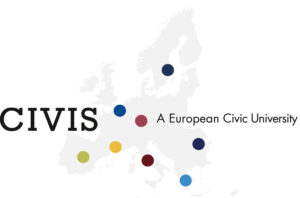PolyCIVIS Confronting the Polycrisis in Europe and Africa
10/2023 – 09/2026
The polycrisis is the combination of several simultaneous major social crises that we are currently facing. However, the main characteristic of a polycrisis is not the simultaneity of the crises, but their interconnectedness: all the causes of one crisis most likely have an impact on other crises, all the problems arising from one crisis also have an impact on other crises, and all political reactions to one crisis have an impact on all other crises. PolyCIVIS aims to provide tools to manage such complex situations and develop sustainable solutions to the current polycrisis.
The collaboration of 11 European and 10 African universities in PolyCIVIS aims to achieve this through:
– taking a holistic view of interactions across crises,
– combining the latest knowledge with lessons learnt from the past,
– a fully integrated, multidisciplinary response across disciplinary boundaries and
– cross-territorial and cross-linguistic networking at local, national, regional, continental and global levels.
Thereby, we address the factors that hinder our ability to solve the polycrisis. These four approaches are applied to three dimensions: Research, Policy and Teaching, with SCEUS taking responsibility for the latter dimension as work-package co-leader with Makerere University in Kampala, Uganda.
As part of the European Universities project CIVIS, PolyCIVIS is coordinated by the Université libre de Bruxelles (ULB). The work plan includes conferences, workshops with political decision-makers, publications and much more.


Mag. Roman Puff
Salzburg Centre of European Union Studies
Mönchsberg 2, 5020 Salzburg
Tel.: +43 660 8044 0
E-Mail:
Web: https://civis.eu/en




